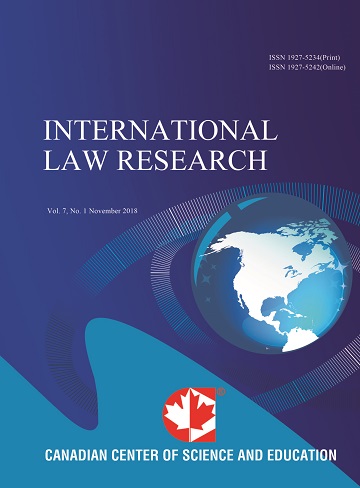Transnational Corporations, Natural Resources and Conflict
- Solomon E. Salako
Abstract
Transnational Corporations (TNCs) exploit natural resources, whether renewable as in the case of forests, fisheries and agricultural products or non-renewable as in the case of minerals or petroleum, in developing countries through their subsidiaries. TNCs’ exploitation of forests and acquisition of intellectual property rights in plants and animal breeding, based on the traditional knowledge of indigenous peoples developed over millennia, are in conflict with the rights of indigenous peoples to their territories, resources and traditional knowledge. TNCs also profit from conflict by trading natural resources that prolong wars; colluding with repressive governments to pervert political processes within a State; aiding and abetting crimes against humanity; and flagrantly violating human rights. This article explores the areas of conflict outlined above and examines the efficacy of the mechanisms for the control of TNCs whether legally binding or not. It is suggested that the only effective way of making TNCs accountable for their human rights violations and aiding and abetting crimes against humanity is the establishment of an international court with jurisdiction over corporations.
- Full Text:
 PDF
PDF
- DOI:10.5539/ilr.v9n1p56
Journal Metrics
h-index (2017): 2
i10-index (2017): 0
h5-index (2017): N/A
h5-median (2017): N/A
Index
- CNKI Scholar
- COPAC
- CrossRef
- DTU Library
- EuroPub Database
- Excellence in Research for Australia (ERA)
- Ghent University Library
- Google Scholar
- Harvard Library
- Infotrieve
- Jisc Library Hub Discover
- LOCKSS
- Open J-Gate
- PKP Open Archives Harvester
- Publons
- ROAD
- Scilit
- SHERPA/RoMEO
- Stanford Libraries
- Ulrich's
- UniCat
- Universe Digital Library
- UoS Library
- WorldCat
Contact
- Joseph TaiEditorial Assistant
- ilr@ccsenet.org
